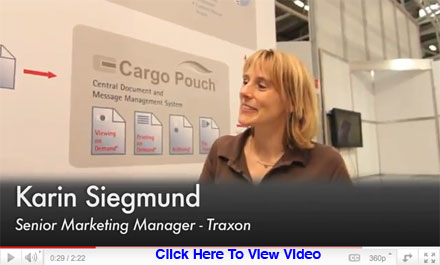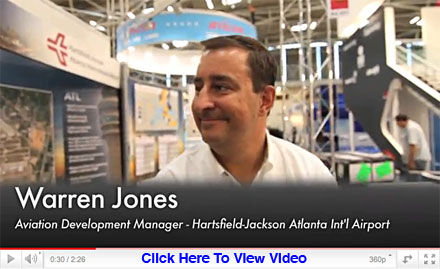A Conversation
With Lisa Brock

Qantas expects global cargo demand to
bounce back next year. So said Lisa Brock, appointed Executive Manager
of Qantas Freight in February.
“There is still some economic uncertainty
in global markets, particularly in many European countries and the U.S.,”
she told FlyingTypers. “This has meant demand in these
regions has been weak.
“Against this weak demand, we have
seen an across-the-board over supply of capacity since November 2010
and most carriers report a decline in volumes over the last six months.
“We are confident of a recovery
in 2012 and are already seeing some positive signs in the lead up to
the Christmas peak.”
She said the strength of the Australian
dollar had been a double-edged sword over the last two years. “We
have definitely seen an impact on exports ex Australia, particularly
with regards to discretionary perishables. Overall, however, I have
been relatively pleased with the strength of the Australian export airfreight
market given the current conditions.
“Inbound traffic to Australia has,
of course, been strong generally. And while you can’t attribute
all of this to the strength of our dollar there is no doubt that it
is one of a number of contributing factors.”
Brock, the driving force behind the division’s
growth strategy in her previous position as Head of Commercial Planning
and Strategy, expects Qantas Freight, which currently employs approximately
900 people across the globe and generates annual revenues of around
AUD1 billion, to continue making strides towards becoming a global leader
in the years ahead. The division now markets the bellyhold freight capacity
on all Qantas international and the majority of Jetstar brands, including
Jetstar International, Jetstar Asia and on Jetstar’s domestic
services within New Zealand.
“The addition of the Jetstar Asia
network has significantly expanded our footprint in Asia and given customers
on both the 3K and QF networks the opportunity to access new markets,”
she said. “We have achieved very solid volumes and a good return
from this capacity over the nine months since January.”
Bellyhold capacity is supported with a mix of scheduled and charter
freighter services operated by a fleet of one Boeing 767-300F and three
wet leased B747-400F. The B767 aircraft was introduced earlier this
year and is currently operating six nights a week between Australia
and New Zealand.
“Our B747s are typically operating
5-6 days a week up into Asia and then across to the U.S. before returning
home,” explained Brock.
She said China was a key market for the
division with Shanghai used as a hub. “We operate an extensive
network of services to and from China including five weekly freighters,
Jetstar Asia flights from Singapore and a daily passenger service to
Shanghai,” she added.
“The market ex China into our home
market has remained buoyant over the past 12 months.”
Elsewhere in Asia, Qantas started operating
a B747 freighter service between Australia, Korea and Chicago in June
2010 in partnership with a Korean forwarder. Demand is driven by the
consumer electronics market primarily to the U.S. where Qantas has a
long standing relationship with AA, offering direct flights to the carrier’s
DFW hub to enable one stop access throughout the U.S.
In South East Asia, Qantas remains one
of Singapore Changi’s major customers. “Singapore is a major
hub for both our Qantas and Jetstar Asia networks,” she said.
“From Singapore we service multiple Qantas mainline destinations
across Asia, Australia, Europe and the UK and are marketing in excess
of 420 weekly Jetstar Asia flights.”
“In addition to our mainline and
freighter capacity we also operate ground handling terminals in Australia
and Los Angeles,” said Brock. “We also have investments
in number of broader supply chain businesses including a freighter management
company with its own air operators certificate (Express Freighters Australia),
a trucking business (JETS Transport Express), courier business (Qantas
Courier) and Australia’s two leading domestic freight businesses
– Star Track Express and Australian Air Express.”
Earlier this month Qantas rolled out its
new iCargo application, part of the company’s ‘Fright Futures’
business transformation plan geared at improving efficiency.
“There are essentially two parts,”
she said. “The deployment of iCargo to replace our legacy IT systems
and review of associated business processes to ensure we are getting
the most out of our investment.
“The cutover of the iCargo application
in our Australian terminals on 14 September marks the end of the deployment
phase. Our global reservations, sales and ULD teams have been using
the application successfully since mid 2010 and our Los Angles terminal
cutover in August this year.”
Qantas expects the system to improve shipment
transparency and operational efficiency while supporting IATA’s
drive for global paperless transactions.
“The efficiency gains we can deliver
for our customers as a carrier will have a flow on effect across the
supply chain,” added Brock.
SkyKing
|






 Lisa
Schoppa
Lisa
Schoppa

